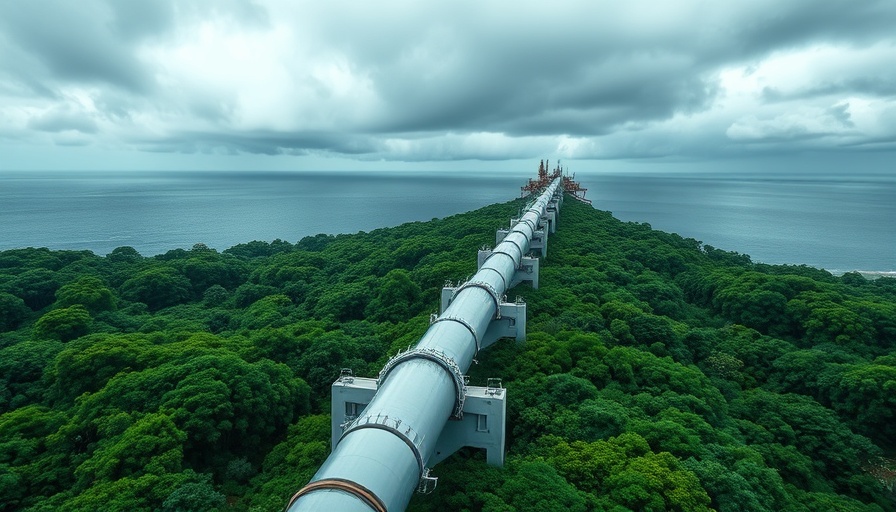
Challenges Facing Equatorial Guinea's LNG Production
Equatorial Guinea's gas production has been on a downward trend, prompting concerns about the future of the country's liquefied natural gas (LNG) output. With the challenges posed by aging infrastructure and a lack of significant investment from major petroleum companies like ConocoPhillips, the EGLNG terminal faces serious threats. The potential for reduced output from one of Africa's pioneering gas producers raises important questions about the country's energy policies and global market implications.
The Role of US Companies in Equatorial Guinea's Energy Sector
As new players enter the Equatorial Guinean offshore scene, the ability of US-based companies to rejuvenate production capabilities will be tested. Recent reports indicate that despite the robust technological innovations typically associated with these firms, they struggle to reverse the production decline effectively. This situation emphasizes the importance of collaboration between local governance structures and foreign entities in fostering a sustainable energy future.
Historical Context: The Rise and Fall of Equatorial Guinea's Energy Sector
Historically, Equatorial Guinea emerged as a key player in Africa's oil and gas industry in the late 1990s and early 2000s, thanks to foreign investments and favorable discovery conditions. However, the narrative has shifted dramatically over the years, with discussions around economic growth, governance, and the management of natural resources taking center stage. Understanding this trajectory is essential for grasping the current challenges facing the industry.
The Importance of Governance and Corruption Mitigation
For Equatorial Guinea to recover its energy sector, governance reform and the tackling of corruption must be prioritized. Transparency in resource management and effective governance can enhance trust among investors and local populations alike. Several studies highlight how corruption not only stifles economic performance but also undermines public confidence in institutions, thus affecting overall democratic governance.
Future Trends: Potential for Renewable Energy Development
As discussions around sustainable energy escalate globally, Equatorial Guinea has an opportunity to pivot from its traditional fossil fuel reliance towards renewable resources. The shift to wind, solar, and hydropower could not only diversify its energy portfolio but also align with global initiatives on climate change. The potential for harnessing renewable energy sources offers a path for economic stability and growth, which will be crucial for the country’s future.
Impact on Local Communities and Economic Growth
The fluctuating fortunes of Equatorial Guinea's LNG production will directly affect local communities dependent on the energy sector. Jobs, local businesses, and overall economic growth are intricately linked to the stability of the energy market. As the government engages with international partners, ensuring community development and safeguarding human rights will be vital to promote a balanced, inclusive economy moving forward.
Equatorial Guinea stands at a crossroads. As the country grapples with declining LNG production and the implications it has on governance and economic viability, concerted efforts must be mobilized towards infrastructure improvement, transparency in operations, and exploring renewable energy alternatives. By embracing change and innovation, Equatorial Guinea can cultivate sustainable growth while maintaining its status on the global energy stage.
If you want to stay updated on energy developments in Africa and their implications for local governance and economic growth, make sure to subscribe for our latest insights.
 Add Row
Add Row  Add
Add 




Write A Comment